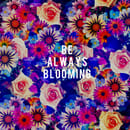The week after Bid Day was probably one of the most stressful weeks of my freshman year. I had received bids from two sororities, and I had a week to decide which one I was going to pledge. I had rushed with a bunch of my friends, and while we had all gotten a bid from one of the sororities, I was the only one who got a bid from the second. Basically, I had to decide between staying with my friends or branching out to a new group of people where I knew next to no one. After a week of pro-con lists and long phone conversations with my mom, I decided to step out of my comfort zone. I filled out the form to commit to the second sorority, and I wish I could say that I never looked back. But I have, a lot, and there have been many days where I have wished that I had chosen differently.
Stepping out of your comfort zone is what you’re supposed to do, right? That’s how you challenge yourself, grow as a person, experience new things and meet new people. At least that’s what I learned growing up, and that’s what I based my decision on last February. But things were off from the get-go. When I met my pledge class for the first time, I discovered that most of them were either already friends or ran in the same social circle. I brushed this off though, thinking that they all seemed nice enough, and I had never struggled to make friends. That was what pledging was supposed to be for anyway, to bring us all together. But pledging came and went, and I started to feel more and more like the odd one out.
I went through a phase where I just couldn’t accept it. I pushed myself to sit at the sorority table at lunch, to go to all the pre-games and mixers even when I didn’t want to, to strike up conversations with my PC in the hopes of forming some sort of connection, but nothing seemed to work. At most of the events, I sat in the corner on my phone as they all danced and took pictures together, posting it all on social media. It got to the point where I had to be really drunk just to get up the courage to go to an event, knowing that this one would probably turn out like all the others. It was really unhealthy, and I was miserable.
The worst part was probably when they all started to go out as a group. My Snapchat would start blowing up with all of their stories as they pregamed and partied together. It didn’t matter who I was out with or how much fun I was having, it always made me feel a little sick to my stomach. Pretty soon I found out about the group chats and the Snapchat groups they had, all without me. I began to wonder what was wrong with me. Was it a popularity thing? Did I not fit their “image”? Did they just straight-up not like me? I remember the weeks leading up to rush and how excited I was to be in a sorority. I couldn’t wait to have sisters, people I could always hang out with and talk to about anything. Fast forward 9 months and I was watching everyone, my friends in their sorority and my PC in mine, have that experience except for me.
I knew that this whole thing wasn’t sustainable. It had turned into a vicious cycle of seeing them all together, feeling bad, and turning that negativity on myself. It had to stop. I wasn’t going to ask my sorority sisters to change, because I realized that the problem wasn’t with them. They had all bonded and were happy, and there was nothing wrong with that. The problem was with the way I reacted to it. Why did I let being left out affect me so much? Why did it have such a profound effect on my self-esteem? It occurred to me that I had been relying too much on outside validation to make me feel better about myself. My self-worth should have been coming from me and who I was as a person. I had to tell myself that I was an awesome person despite what others thought of me, not because of it! Just because my sorority sisters didn’t want to hang out with me didn’t make me weird or bad or wrong in any way. I had a bunch of other friends, whether they were Greek or non-affiliated or didn’t even go to Kenyon, who loved and supported me and wanted to spend time with me because they knew me and liked me as a person. I’ve found that the best part about having those people in my life is that they can help me to see my worth in times when I can’t. I’ve had to learn to focus on what I do have instead of what I don’t, and to not let other people’s opinions of me shape what I think about myself. I’m definitely a lot happier that way.
I wanted to write this article because I knew that I couldn’t be the only person to feel this way. I wanted to share my experience and hope that it could help people coping with similar situations. So the long-winded lesson from my story is this: sometimes you are going to be the odd one out. Not everyone is going to like you and want to be your best friend. But that doesn’t make you any less of an amazing person.


